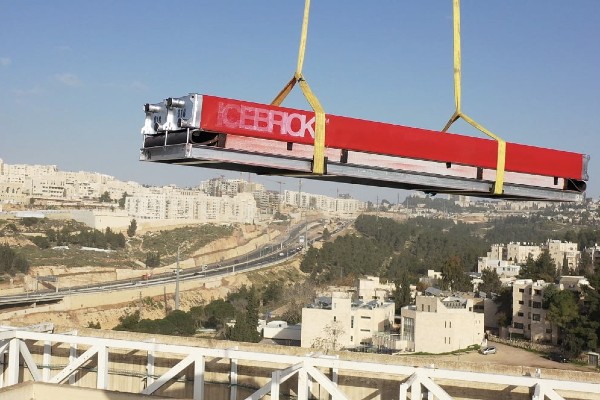An Israeli startup may have solved one of renewable energy’s biggest problems: storing energy for after the sun goes down.
By Pesach Benson, United With Israel
An Israeli startup based in a moshav near Ashdod appears to have solved one of renewable energy’s most vexing problems: storing energy for after the sun goes down or when the wind stops blowing.
Yaron Ben Nun, founder of Nostromo Energy, based in Moshav Shdema, said he “understood that if solar power was going to be the big winner for clean energy, then the next big thing in its technology would be storage because at sunset, the whole system would turn off.”
And that led him to develop the “IceBrick.”
“I wanted to be part of something that could bring about a big change for the greater good,” says Ben Nun. “My enthusiasm stems from being at this point in time where we can truly influence reality.”
No Camels, an Israeli news site devoted to technology and innovation ,described the IceBrick as “a modular thermal cell based on the high energy storage potential in water as it experiences a phase change from liquid to ice.”
“The thermal ice energy storage process works by freezing water using either a surplus of unused solar energy or inexpensive electricity at off-peak hours and thawing the ice during the day to supply plentiful air conditioning to buildings. Doing so alleviates the added pressure air conditioning would normally place on electrical infrastructure and reduce the need for utilities to build additional power plants to meet rising demand,” the site explained.
According to Ben Nun, “The ability of water to hold cold energy when it changes from liquid to solid is unbelievably high, and tap water is widely accessible.”
“It’s not lithium, or cobalt, or any other kind of rare earth material,” he said. ” You just open the tap water, and you have the best material by far to hold cold energy.”
Hot weather has become more oppressive, and buildings utilize an estimated 20 percent of their electricity on air conditioning.
According to the International Energy Agency, a Paris-based intergovernmental organization, air conditioning makes up 70% of peak electricity demand in the Middle East. This has created an unfortunate cycle: The more people use air conditioning, the more CO₂ emissions are released into the atmosphere. Those emissions warm the planet.
But by relying on water rather than fossil fuels, IceBrick breaks that cycle.
